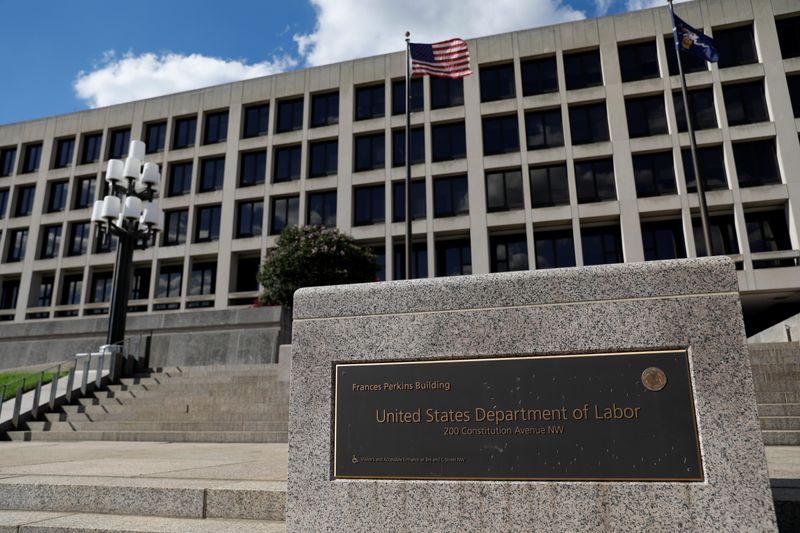By Tom Hals
WILMINGTON, Delaware (Reuters) – A U.S. decide has blocked a Division of Labor rule from taking impact that will have expanded the varieties of retirement advisers who’re thought-about fiduciaries, discovering the rule was arbitrary and conflicted with a regulation that governs retirement plans.
The rule, unveiled in April because the “Retirement Security Rule,” was challenged by insurance coverage teams who argued it conflicted with ERISA, or the Worker Retirement Revenue Safety Act.
Decide Jeremy Kernodle in Tyler, Texas, mentioned in a Thursday ruling that the Federation of People for Client Selection Inc and different insurance coverage teams had been prone to prevail of their arguments. He blocked the rule nationally from taking impact on Sept. 23 whereas the lawsuit performs out.
The insurance coverage teams had argued the rule improperly handled as fiduciaries those that present one-time suggestions to retirees, resembling for rolling over investments from an ERISA plan to a person retirement account, or IRA.
The Labor Division mentioned in a press release that the rule ensures retirement financial savings recommendation is in the very best curiosity of the client, not of the monetary skilled. “The department continues to believe that this rule is essential to ensuring that retirement investors are protected,” the DOL assertion mentioned.
The rule was meant to shut a loophole within the fiduciary normal that didn’t apply to suggestions for purchases of non-securities resembling fastened index annuities, that are usually offered by insurance coverage corporations, in accordance with the White Home.
Investments in such annuities are engaging to risk-averse buyers and have grown quickly but additionally include increased prices. The White Home estimated the fiduciary rule might have saved retirees $5 billion a 12 months on such investments.
Business teams have been utilizing the courts to chip away at regulatory energy and received a serious Supreme Court docket victory in June in a case often known as Loper Shiny, which held that judges shouldn’t defer to an company’s interpretation of an ambiguous regulation.

Kernodle mentioned because of Loper Shiny, he didn’t owe deference to the Labor Division’s interpretation of ERISA.
The Labor Division tried to develop the fiduciary rule in 2016, below the administration of Democratic President Barack Obama. That effort was blocked by the fifth U.S. Circuit Court docket of Appeals in 2018 and Kernodle mentioned the newest model of the fiduciary rule fails for lots of the similar causes.




